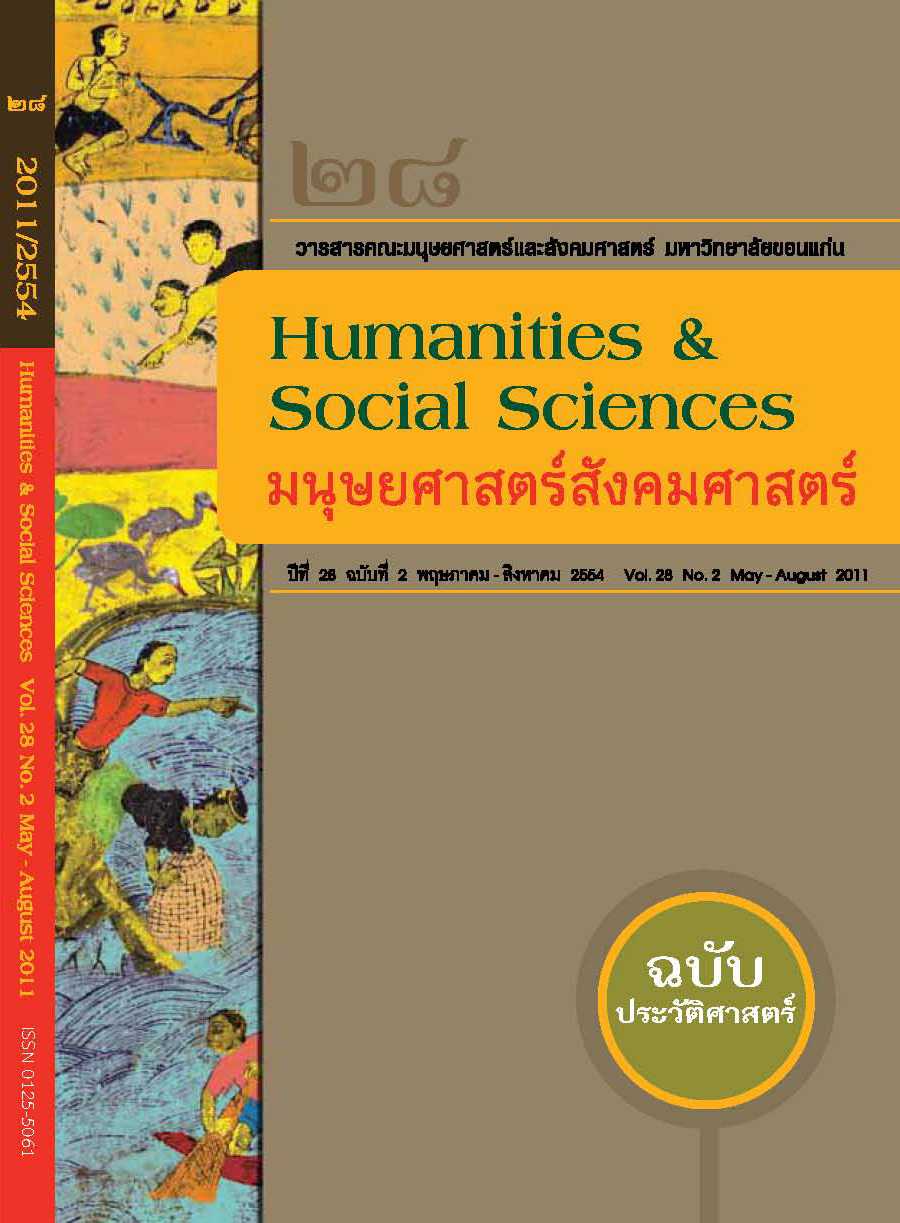ประวัติศาสตร์นครจำปาศักดิ์และเมืองอุบลราชธานีในสายตาของ เอเจียน แอมอนิเย (Etienne François Aymonier, 1883-1884)
Abstract
บทคัดย่อ
บทความนี้ คือ การเปิดตัวการศึกษาประวัติศาสตร์นครจำปาศักดิ์ และเมืองอุบลราชธานีในสายตาของเอเจียน แอมอนิเย ระหว่าง ค.ศ. 1883 -1884 ผู้เขียนมุ่งอธิบายพัฒนาการทางประวัติศาสตร์ของเมืองทั้งสอง โดยอธิบายการก่อตัวของเมือง ในฐานะความภักดีของบรรดาเจ้าเมืองทั้งสองต่อราชวงศ์จักรี นครจำปาศักดิ์ได้รับการสถาปนาจากผู้นำกลุ่มราชวงศ์เวียงจันทน์ พร้อมกับพระครูโพนสะเม็ก ในต้นคริสต์ศตวรรษที่ 18 ในปลายคริสต์ศตวรรษเดียวกันนี้เอง เมืองอุบลราชธานีได้รับการก่อตั้งโดยกลุ่มผู้นำเชื้อสายไทลื้อ หรือไทลาวที่ลี้ภัยกษัตริย์ล้านช้างมายังดินแดนแม่น้ำโขง และมูลตอนล่าง บรรดาผู้นำได้ใช้ความภักดีต่อราชสำนักบางกอก ในการรักษาความมั่นคงให้กับเขตอำนาจของตน ผู้ศึกษาพบว่า นครจำปาศักดิ์สามารถรักษาวัฒนธรรม ประเพณีของตนเอาไว้ได้ ในขณะที่กลุ่มอาญาสี่เมืองอุบลได้ลดบทบาทของตนลงไปตามลำดับ กระทั่งสูญหายไปจากความทรงจำชาวอุบล
Abstract
This article reports on an analysis of Etienne Aymonier’s records of his survey of Nakon Champassk (Bassac) and Moeuong Ubon histories, 1883-1884. The article focuses on the historical development of these two moeuong (cities), including the establishment of these moeuongs as a token loyalty to the Chakri dynasty. Bassac was established by the Vientiane royal family and Pra Kru Ponxamek (a Buddhist monk), early in the 18th century. Moeuong Ubon was built by a group of Tai-Lue or Tai-Lao leaders toward the end of the 18th century. These founders of Moeuong Ubon had escaped from the Lanxang King. They settled down in the lower Mekong and Moun River plains. This article argues that Bassac can maintain its traditional culture, but the Ayasee group (-traditional nobles) of Moeuong Ubon downgradeded their status and role to the point where they disappeared from the local society.



